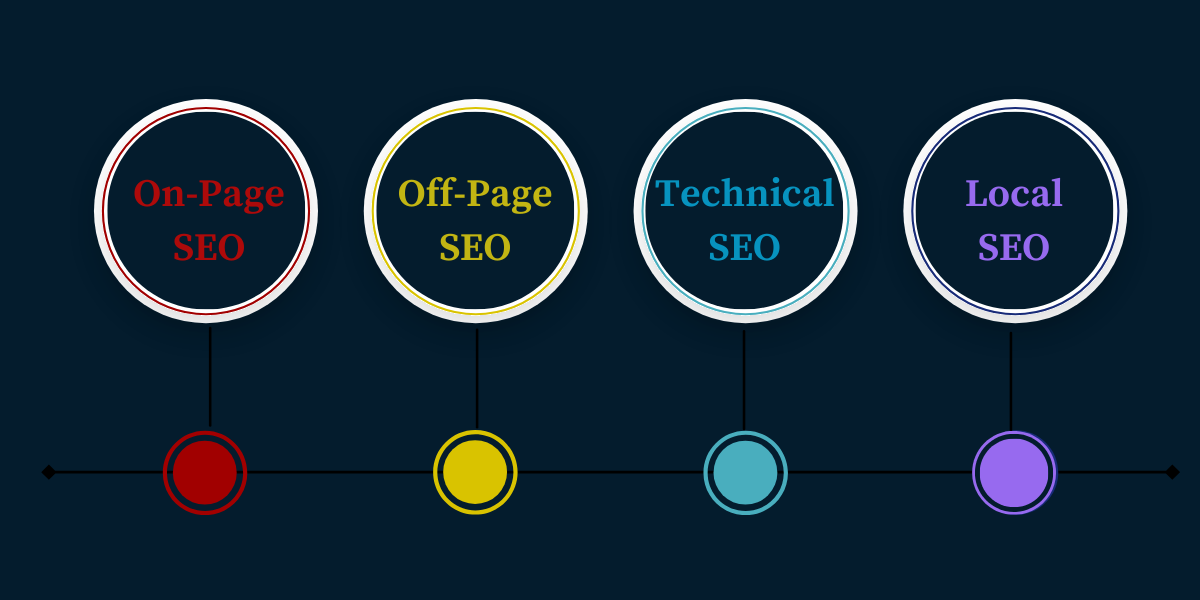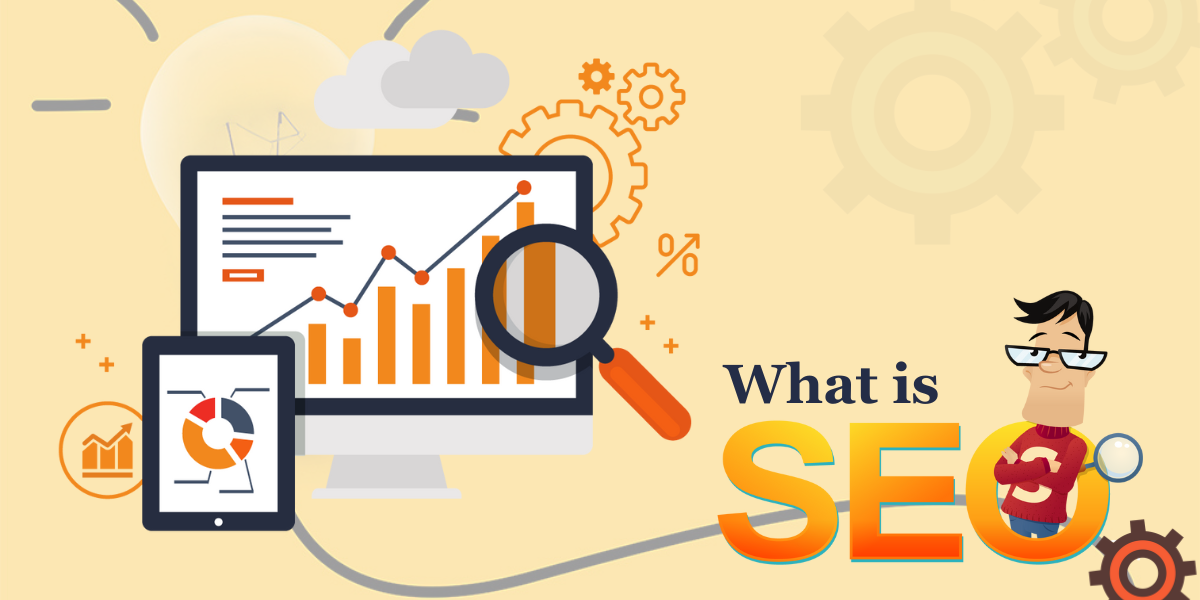What is SEO (Search Engine Optimization)?
SEO, or Search Engine Optimization (full form seo), is the practice of optimizing your website’s content and structure to improve your website’s visibility and ranking in search engine results pages (SERPs). The goal is to increase organic traffic to your website by making it more accessible and attractive to search engines and users alike. Effective SEO involves optimizing both on-page and off-page factors, such as website structure, content, keywords, backlinks, and social media presence, to boost your website’s relevance and authority. By improving your website’s search engine ranking, you can attract more visitors, build brand awareness, and ultimately increase revenue and growth for your business through Delhi seo company.
Why is SEO important?
SEO (Search Engine Optimization) is the process of optimizing a website or online content to rank higher in search engine results pages (SERPs) for specific keywords and phrases. Here are some reasons why analyzing SEO is important:
- Increased visibility: SEO helps improve the visibility of your website or content in search engines. This can result in more organic traffic to your website.
- Improved user experience: SEO helps to optimize your website’s structure and content, making it more user-friendly and easier to navigate.
- Cost-effective marketing: SEO is a cost-effective marketing strategy as it targets users who are actively searching for your products or services.
- Increased credibility: Websites that rank high in search results are viewed as credible and trustworthy by users. This can lead to increased brand awareness and sales.
- Competitive advantage: Implementing SEO can help you stay ahead of your competitors and attract more customers.
- Long-term benefits: Unlike paid advertising, SEO is a long-term strategy that can continue to bring in organic traffic and leads for years to come.
- Mobile optimization: As more and more people use mobile devices to browse the internet, optimizing your website for mobile devices is crucial. SEO can help improve your mobile optimization and user experience.
SEO is an essential part of any digital marketing strategy, helping businesses to increase visibility, credibility, and ultimately, sales.
Types of SEO

- On-page SEO: This involves optimizing individual web pages in order to rank higher and earn more relevant traffic from search engines. This includes optimizing meta tags, headings, content, images, and more.
- Off-page SEO: This refers to all the activities outside of your website that contribute to improving your search engine rankings. This includes building backlinks, social media marketing, influencer outreach, and more.
- Technical SEO: This is the process of optimizing your website for the crawling and indexing phase of the search engine process. This includes optimizing website speed, mobile-friendliness, schema markup, and more.
- Local SEO: This is the practice of optimizing your website and online presence to attract local customers and clients. This includes optimizing your Google My Business listing, getting listed in local directories, local SEO services and using localized keywords.
On-Page SEO
On-page SEO refers to the optimization of website elements to improve its search engine ranking and visibility. Here are some strategies for effective on-page SEO:
- Keyword Research: Identify relevant and high-traffic keywords to include in your content.
- Title Tag Optimization: Optimize your title tags to include your target keywords and be descriptive and engaging.
- Meta Description: Craft a compelling meta description that accurately reflects the content and encourages clicks.
- Headings (H1, H2, H3): Use headings to structure your content and incorporate your target keywords where relevant.
- Content Optimization: Ensure your content is high-quality, relevant, informative, and keyword-rich.
- Internal Linking: Include internal links to other relevant content on your website to improve user engagement and increase time spent on the site.
- Image Optimization: Optimize your images by compressing their file size, using relevant alt text, and including appropriate captions.
- URL Optimization: Ensure your URLs are descriptive, easy to read, and include relevant keywords.
- Mobile Optimization: Make sure your website is mobile-friendly, responsive, and easy to use on mobile devices.
- Page Speed Optimization: Improve your website’s page speed by optimizing images, compressing files, and minimizing HTTP requests.
These strategies can help improve your website’s ranking and visibility in search engines, ultimately driving more organic traffic and increasing user engagement by seo company in India.
Off-Page SEO
Off-page SEO refers to all the activities that are undertaken outside of a website to improve its ranking on search engine result pages (SERPs). The goal of off-page SEO is to increase the authority, relevance, and popularity of a website in the eyes of search engines. Here are some strategies for off-page SEO:
- Link Building: This involves getting other websites to link back to your site. It helps to increase your website’s authority and drive traffic to your site.
- Social Media Marketing: Social media platforms are great for increasing the visibility of your website. They help to build relationships with your audience and promote your content.
- Influencer Marketing: This involves partnering with influencers who have a large following on social media platforms. It helps to increase your website’s reach and drive traffic to your site.
- Guest Blogging: This involves writing content for other websites in your niche. It helps to build relationships with other websites and drive traffic to your site.
- Brand Mentions: This involves getting other websites to mention your brand name or link back to your site without a specific link. It helps to increase your website’s authority and brand recognition.
- Forum and Community Participation: Participating in online forums and communities in your niche helps to establish your expertise and drive traffic to your site.
- Local SEO: This involves optimizing your website for local search results. It helps to increase your website’s visibility in local search results and drive traffic to your site.
Off-page SEO strategies are essential for increasing the visibility of your website and improving its ranking on SERPs.
Tools of SEO (Digital Markeitng)
SEO (Search Engine Optimization) tools are crucial for digital marketers to improve website traffic and search engine rankings. Here are some popular SEO tools, SEO services and their features:
- Ahrefs: A comprehensive tool that offers keyword research, competitor analysis, backlink tracking, and site audits.
- SEMrush: Provides insights into keywords, organic and paid search traffic, competitor analysis, and social media performance.
- Google Analytics: A free tool that tracks website traffic, user behavior, and provides insights into website performance.
- Google Search Console: Helps monitor website performance, track search engine rankings, and identify technical analyzing SEO issues.
- Moz Pro: Offers keyword research, site audits, link tracking, and competitor analysis.
- Yoast SEO: A WordPress plugin that helps optimize content for search engines,yeast seo, including analyzing keyword density and readability.
- Screaming Frog: A site crawler that helps identify technical SEO issues, broken links, and duplicate content.
- Google Keyword Planner: Provides insights into keyword search volume, competition, and suggested bids for paid search campaigns.
- Serpstat: Offers keyword research, competitor analysis, and backlink tracking.
- Majestic: A backlink analysis tool that helps identify backlinks and their quality.
Apart from these small seo tools also use for SEO. Using these SEO tools can help digital marketers create effective SEO strategies and improve website visibility and search engine rankings.
How does SEO work?
SEO (Search Engine Optimization) is the practice of improving the quantity, best SEO services and quality of traffic to a website from search engines through organic search results.
- Keywords: Research and incorporate relevant keywords and phrases throughout the website’s content, titles, and meta descriptions.
- On-page Optimization: Ensure the website’s architecture, structure, and HTML elements are optimized for search engines.
- Content Creation: Regularly produce high-quality and engaging content that provides value to the target audience.
- Backlinks: Build quality links from reputable websites to increase the website’s authority and trustworthiness.
- User Experience: Enhance the website’s usability, speed, and accessibility to improve user experience.
- Analytics: Monitor and analyze website traffic and user behavior to make data-driven improvements to the SEO strategy.
By following these practices, websites can improve their search engine rankings, drive more organic traffic, and ultimately increase conversions and revenue.
Conclusions
Digital marketing is essential for any modern business to succeed, with its ability to reach a vast and diverse audience through various channels. Effective digital marketing strategies include search engine optimization, social media marketing, email marketing, and content marketing. It requires constant analysis and adaptation to ensure maximum ROI and business growth.

